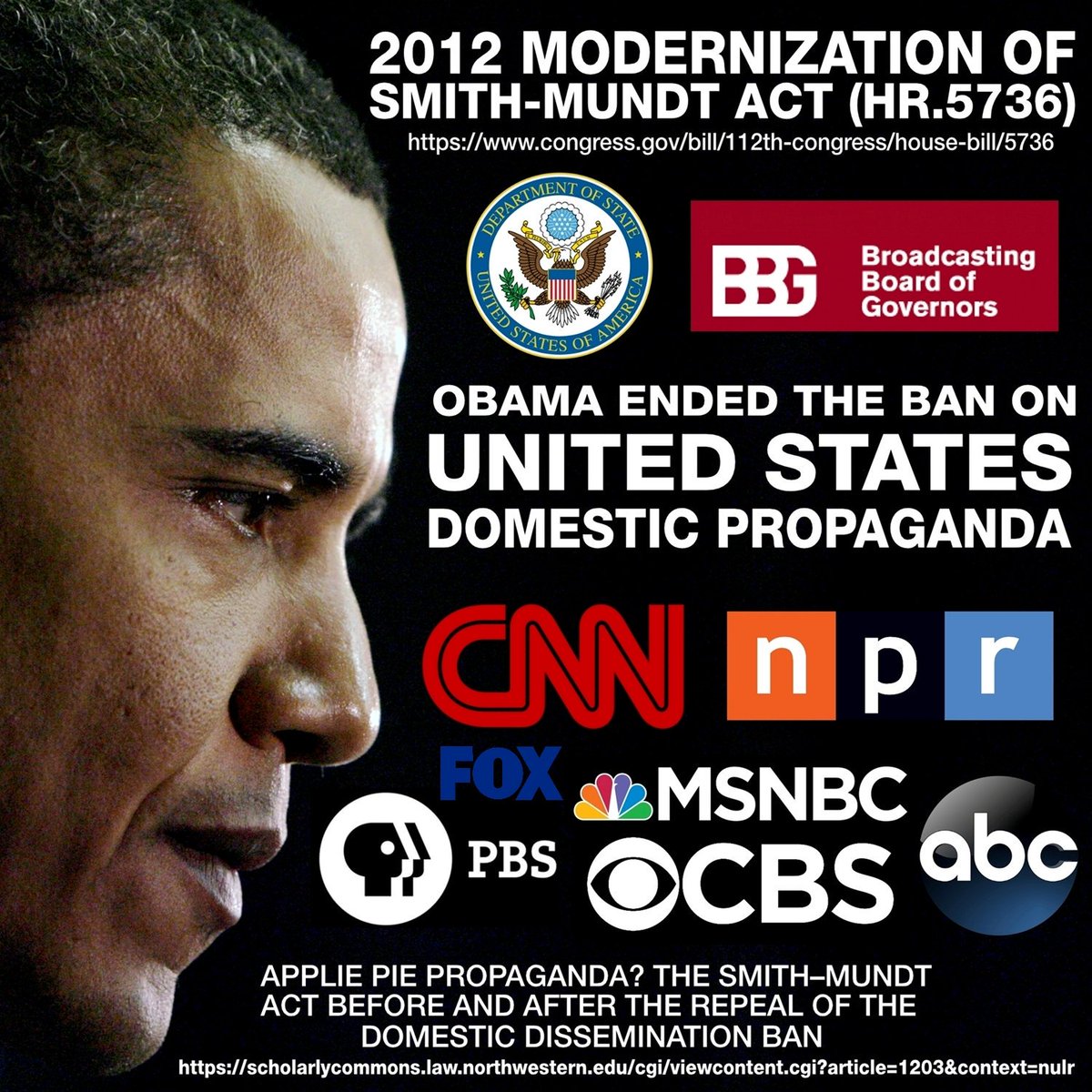I really wish I could have made this blog post more interesting; but after all, it is the Smith-Mundt act. Nonetheless, I enjoyed learning about it so hopefully some of this can be enjoyable for you as well.
---
The Smith-Mundt Act, also known as The US Information and Educational Exchange Act of 1948, enabled government information information services to disseminate abroad information about the United States, its people, and policies promulgated by government officials concerning matters affecting foreign affairs. The purpose of this act was to promote a better understanding of the United States among the peoples of the world and to strengthen cooperative international relations.
Essentially, this means exactly what it says. The the US Government, under the Smith-Mundt Act, is permitted to prorogate messages, which it finds appropriate or necessary, to other nations.; nonetheless, with the primary intention of shining a positive light on America to foreign populations. All in all, the Smith-Mundt Act can be thought of as Public Relations for the United States at best, advertising at the least, and propaganda at it's worst; especially once we look at the implications of the 2012 Modernization of the Smith-Mundt Act.
Now a days, the primary way this communication is carried out is through broadcasted television shows, although communication many also happen with foreign audiences through the use of books, magazines, educational, cultural, and technical exchanges, face to face contacts, ext. as well. The reach of the content covered by these various mediums and networks no longer focus solely on US government policies shifting to other important content such as human rights abuses' around the world, coronavirus updates, and general world news.
A list of the US Agency of Global Media's Foreign Broadcast Networks
The origins of the Smith-Mundt Act are fascinating. "In an effort to consolidate wartime propaganda efforts, President Franklin Roosevelt formed the Office of War Information (OWI) in 1942 by executive order. The mission of the OWI was to counter Axis propaganda and to provide information programs designed to facilitate the intelligent understanding of the war policies, activities, and aims of the government" (northwestern.edu). During WWII, there were even pro-American Hollywood films which disguised Pro-American proprogranda in the entertaining medium of a motion picture. However, once the war waned down, there wasn't as much of a need for domestic proprogranda. However, in October of 1945 not long after the end of the War, there was the consideration of creating a permanent government broadcasting agency. A few years passed and a few bills failed. but Rep. Mundt was able to make a successful case for what is now the US Information and Educational Exchange Act of 1948 stating that a bill needs to be designed which "give legislative authority for our Voice of America short-wave program and also set up a broad over-all program to tell the truth about America in the areas of the world where we are today being misinterpreted abroad by the voices coming from the Moscow headquarters of Red fascism"(northwestern.edu). The Bill was hotly but was signed into law by President Harry Truman in early 1948.
For many this is a dangerous thing. According to a petition started on Change.org, a user writes that this law "gives the United States government full legal power to propagandize its own citizens. This should not be tolerated. It calls into question any, and all news reports, news articles, commercials, motion pictures, staged events reported as real news" (Change.org) see screenshot below.
Sources:
https://scholarlycommons.law.northwestern.edu/cgi/viewcontent.cgi?article=1203&context=nulr
https://www.change.org/p/donald-j-trump-repeal-the-smith-mundt-modernization-on-act-of-2012
Image Sources:
https://pbs.twimg.com/media/EJoKB-qXsAASQSv.jpg
https://qph.fs.quoracdn.net/main-qimg-fd0ac8ae6b6cd466ee0175393ea78129



Comments
Post a Comment